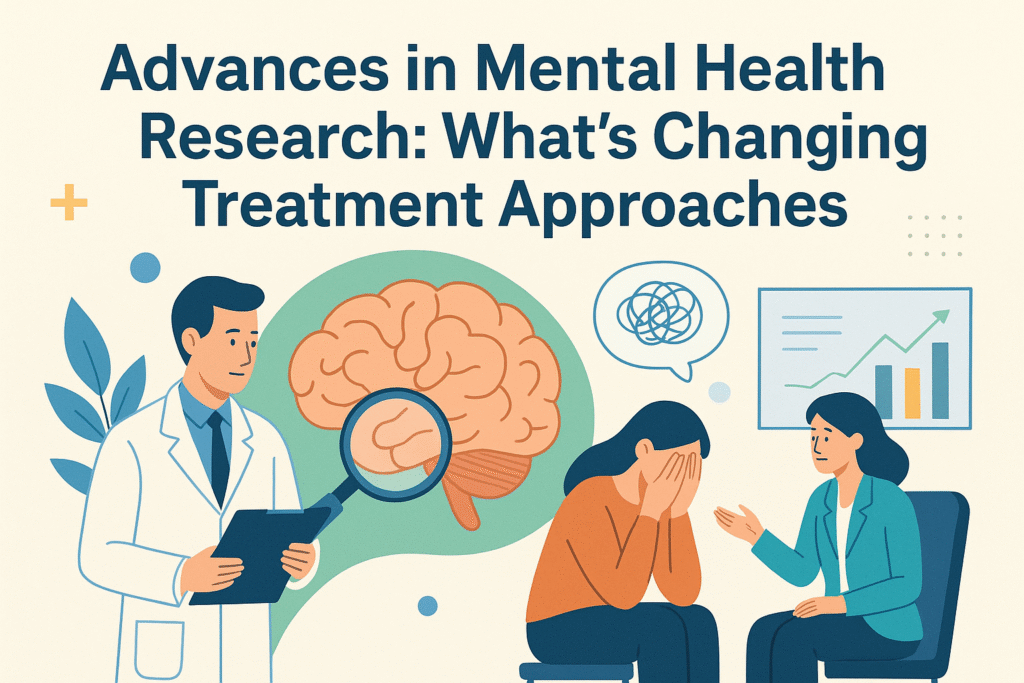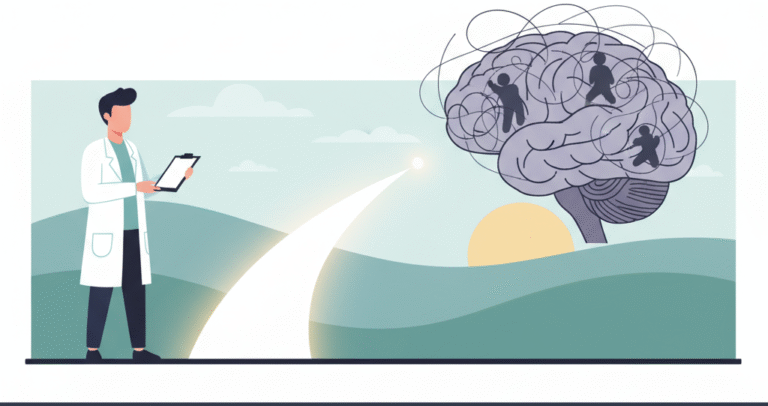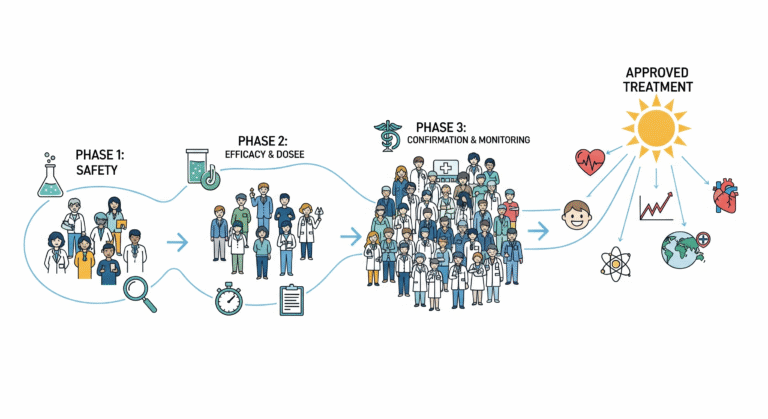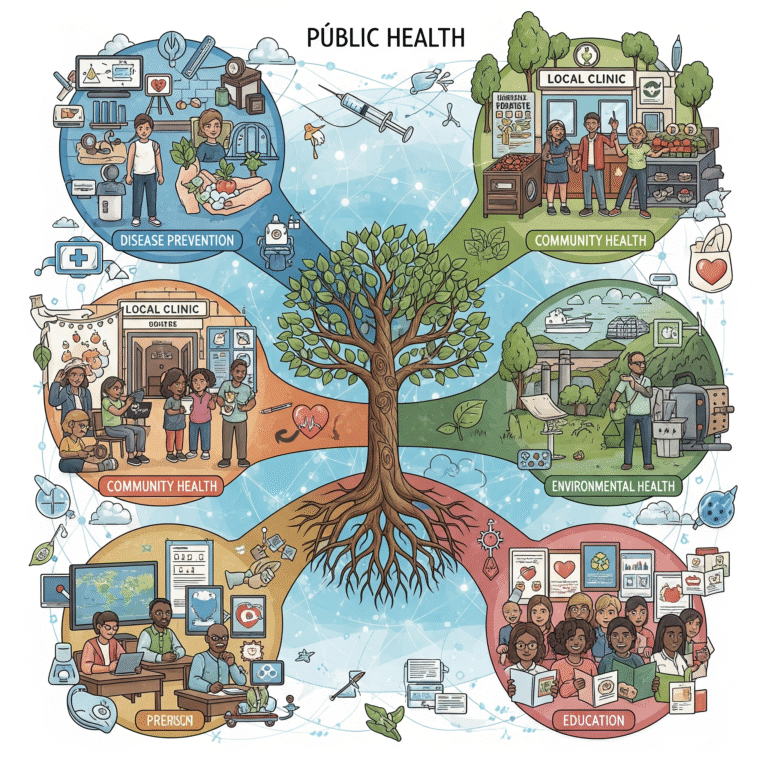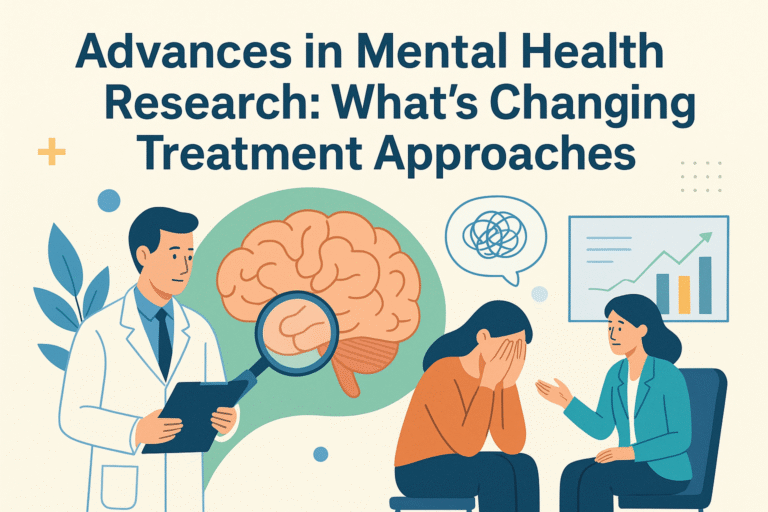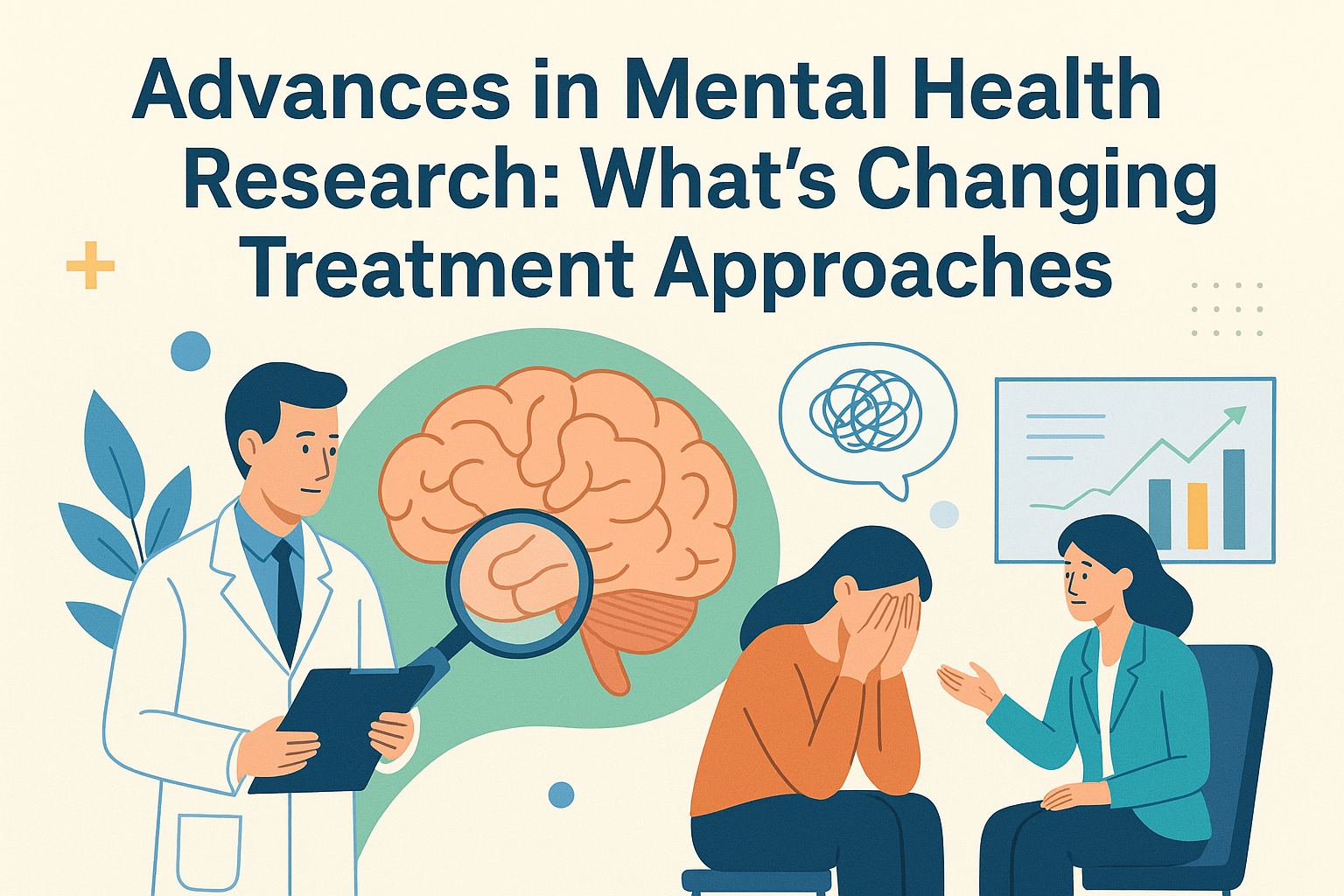
Advances in Mental Health Research: What’s Changing Treatment Approaches
Mental Health Research
Introduction: A New Era for Mental Health Treatment
Mental health has long been one of the most misunderstood and stigmatized aspects of healthcare. For decades, treatments were limited, often relying on broad medications or talk therapies that did not address the full complexity of psychiatric conditions. But today, advances in mental health research are revolutionizing the way clinicians, researchers, and policymakers approach mental illness.
From brain imaging technologies and genetic studies to digital health tools and innovative therapies, mental health treatment is rapidly evolving. These advances are not just changing clinical practice—they are transforming lives. As the world increasingly recognizes the importance of mental health, research-driven innovations are paving the way toward more personalized, effective, and compassionate care.
Understanding Mental Health Research: Why It Matters
Mental health research explores the causes, mechanisms, and treatments of psychiatric disorders. Unlike traditional approaches that focused mainly on symptoms, modern research digs deeper into biological, psychological, and social factors.
Why does this matter? Because mental illnesses such as depression, anxiety, bipolar disorder, and schizophrenia are not one-size-fits-all conditions. They are influenced by genetics, brain chemistry, environment, and lifestyle. Research ensures that treatment approaches reflect this complexity, leading to more effective outcomes.
In fact, the World Health Organization (WHO) has emphasized that expanding research in mental health is key to addressing the global mental health crisis. Without it, millions remain undiagnosed, untreated, or mismanaged.
Advances in Neuroscience and Brain Imaging
One of the most groundbreaking developments in mental health research has been the use of neuroimaging technologies such as fMRI (functional magnetic resonance imaging) and PET scans. These tools allow scientists to observe the brain in real time, identifying which areas are active during specific thoughts, emotions, or behaviors.
Research has shown, for example, that depression is linked to abnormal activity in the prefrontal cortex and amygdala, while anxiety disorders involve hyperactivity in the fear-processing centers of the brain. This knowledge helps in designing targeted therapies and improving diagnosis.
Brain imaging also plays a role in evaluating the effectiveness of treatments. By comparing pre- and post-treatment brain scans, researchers can see how therapies reshape neural activity, offering scientific validation for interventions like cognitive behavioral therapy (CBT).
Genetics and Personalized Psychiatry
Another major leap forward comes from the field of genomics. Studies have identified genetic variations that increase susceptibility to mental health conditions. For instance, certain gene markers have been linked to higher risks of schizophrenia or bipolar disorder.
This research is giving rise to personalized psychiatry, where treatments are tailored to an individual’s genetic profile. Instead of trial-and-error prescribing, doctors can use genetic testing to predict which medications will be most effective and least likely to cause side effects.
The concept of pharmacogenomics—matching drugs to genes—is already being applied in psychiatry, promising a future where treatments are more precise and less burdensome for patients.
New Frontiers in Psychotherapy
Traditional talk therapies remain effective, but research has expanded the toolbox of psychotherapeutic approaches. Evidence-based therapies such as:
Cognitive Behavioral Therapy (CBT): Proven effective for depression and anxiety.
Dialectical Behavior Therapy (DBT): Designed for borderline personality disorder and emotional regulation.
Acceptance and Commitment Therapy (ACT): Focuses on mindfulness and behavioral flexibility.
Recent research also highlights digital therapy tools, including online CBT programs and mobile apps that deliver guided exercises. These innovations make therapy more accessible, especially in regions with limited access to mental health professionals.
Medication Advances in Mental Health
Psychopharmacology has seen significant progress in recent years. New classes of antidepressants, mood stabilizers, and antipsychotics are being developed with fewer side effects and improved efficacy.
Research is also exploring the use of psychedelic-assisted therapies. Substances like psilocybin (from mushrooms) and MDMA are being studied for treatment-resistant depression, PTSD, and anxiety, with promising results. While controversial, these trials could reshape psychiatric treatment if approved.
In addition, long-acting injectable medications are helping patients with conditions such as schizophrenia maintain consistent treatment, reducing relapse rates.
Digital Mental Health and Telepsychiatry
The COVID-19 pandemic accelerated the rise of telepsychiatry, making mental health care accessible from home. Research shows that virtual therapy is as effective as in-person care for many conditions, breaking down barriers of geography and stigma.
Mobile applications that track mood, sleep, and stress levels are also transforming mental health care. These apps provide data-driven insights that clinicians can use to adjust treatment. Combined with AI, digital platforms are beginning to predict relapses before they occur, allowing for timely intervention.
Integrating Lifestyle and Holistic Approaches
Mental health research increasingly highlights the role of lifestyle factors—diet, exercise, sleep, and mindfulness—in maintaining psychological well-being. Studies show that regular physical activity can reduce symptoms of depression as effectively as medication in some cases. Nutritional psychiatry, which explores the impact of diet on brain function, is another emerging field.
Mindfulness-based interventions, such as meditation and yoga, are supported by growing evidence for reducing stress, anxiety, and burnout. These holistic approaches, once considered “alternative,” are now recognized as complementary tools backed by science.
Challenges in Mental Health Research
Despite advances, mental health research faces obstacles. Stigma remains a major barrier, discouraging people from seeking help or participating in studies. Funding gaps also hinder progress, as mental health often receives less research investment compared to physical illnesses like cancer or heart disease.
Another challenge is global inequality. Most mental health research is conducted in high-income countries, leaving low- and middle-income populations underrepresented. Expanding research in diverse settings is essential for treatments that work universally.
The Future of Mental Health Treatment
The future of mental health care is moving toward integration, personalization, and prevention. Advances in artificial intelligence, genetics, and digital health will make treatments more precise and accessible. Preventive approaches—identifying at-risk individuals early—will reduce the global burden of mental illness.
Global collaboration, open-access publishing, and increased funding are also key to accelerating progress. By prioritizing research, societies can ensure that mental health is treated with the same urgency and scientific rigor as physical health.
Conclusion: Research Driving Change in Mental Health
Mental health research is no longer confined to the margins of healthcare. It is now at the forefront of scientific inquiry, shaping treatment approaches that are more effective, humane, and inclusive.
From brain imaging and genetic testing to digital therapies and lifestyle interventions, the landscape of psychiatry is being transformed. These advances not only improve individual outcomes but also influence public health policies, ensuring mental health receives the attention it deserves.
Ultimately, advances in mental health research are changing the way we understand and treat mental illness—bringing hope, innovation, and better care to millions worldwide.
For more relate article visit Medical Research and Analysis
